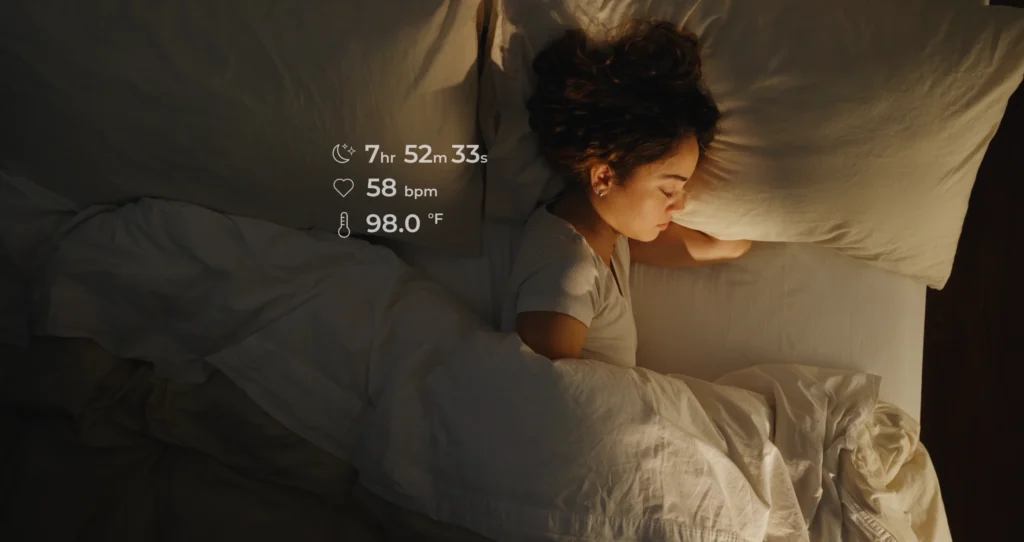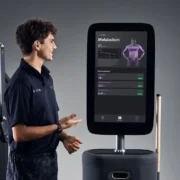The wearable space has a new contender, and it’s all ears. Lumia 2 has launched, backed by new funding and nearly six years of engineering and clinical work
The smallest new wearable on the market isn’t a ring or a watch. It’s an earring that weighs less than a gram, is five times smaller than AirPods and tracks the flow of blood to the brain.
Lumia, a Boston startup founded in 2020 by former Bose engineers and talent from Peloton, Whoop and Philips, has launched Lumia 2, a smart earring system that tracks real-time blood flow and shows how circulation influences energy, focus and mental clarity.
The device also offers sleep, temperature, menstrual cycle and readiness tracking.
The launch arrives with new financing. Lumia has raised $7 million from J2 Ventures, BonAngels Venture Partners and several angel investors, along with $5.1 million in government contracts and grants. Total funding now stands at $17.2 million.
And with smart rings now dominating the wearable market, especially among younger consumers, earrings may be the next form factor to catch on. U.S. consumers under 34 are nearly twice as likely as the average consumer to own a smart ring, according to data from Circana, suggesting an appetite for smaller, less intrusive devices.
“This is what comes after smart rings,” Lumia co-founder and CEO Daniel Lee said. “Just as Oura made rings smart, we’ve made earrings smart. Smart Earrings are the ultimate wearable form factor with new capabilities possible only in the ear, unlocking meaningful medical use case potential in a consumer-first form factor.”
The company developed its first version with researchers at Johns Hopkins, Duke and Harvard to support patients with chronic blood flow disorders such as Postural Orthostatic Tachycardia Syndrome (POTS) and Long COVID.
With Lumia 2, the device is moving beyond clinical use to the broader consumer market.
Lumia 2 centers on the Lumia Core, a small smart earring back worn on the left ear that houses the company’s PreciseLight sensor, processors and battery. The Core can attach to any push-back earring through Lumia’s SwitchBack design, but the company also sells low-profile Lumia Earrings that are sold in pairs, optimized for continuous wear and designed with a swappable battery pack.

The earrings are made with non-allergenic materials such as platinum and titanium and include a locking mechanism to prevent loss, while the Core provides all of the sensing and health tracking.
Lumia says continuous blood flow tracking can surface physical or cognitive dips that traditional metrics miss. Blood flow shifts with hydration, diet, posture, movement and sleep, and the device highlights those changes throughout the day.
“While we’ve been building for people with chronic blood flow disorders, our team members without blood flow disorders have discovered fascinating blood flow patterns that have changed how we live for the better,” Lee said. “From seeing how the way you sit affects your blood flow and cognitive performance, to visualizing the consequences of your carb-heavy lunch choice in your post-lunch dip, to seeing how morning exercise can boost your circulation for the rest of the day — the transformative personal revelations have been endless.”
Lumia 2 will support iOS and Android and will first be available in the U.S. and Canada. A waitlist has opened for early access and early bird pricing. Lumia 1 remains available to the general public, although some features, including sleep tracking, will debut in Lumia 2. Lumia 1 members are eligible for free upgrades through the company’s Edge Access Membership.
According to the company’s website, Lumia 2 is priced at $249 with a monthly membership that starts at $9.99.
Though Lumia 2 is not an FDA-cleared medical device and is not intended to diagnose, treat or prevent disease, the company says its diagnostic features are under investigation for a future filing. Its blood flow tracking science, however, has been published in peer-reviewed journals, including the Journal of the American Heart Association and the Journal of the American College of Cardiology.
Lumia isn’t the only company eyeing the ear.
South Carolina–based Incora Health is preparing to launch smart earrings that track metrics such as basal body temperature, heart rate variability, sleep and activity, and run them through AI models reviewed by medical professionals to deliver guidance tailored to each wearer’s menstrual cycle. Incora is currently building a waitlist of its own ahead of its debut.



